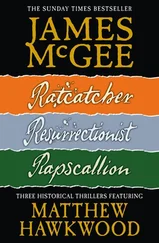Tim Stevens - Ratcatcher
Здесь есть возможность читать онлайн «Tim Stevens - Ratcatcher» весь текст электронной книги совершенно бесплатно (целиком полную версию без сокращений). В некоторых случаях можно слушать аудио, скачать через торрент в формате fb2 и присутствует краткое содержание. Жанр: Триллер, на английском языке. Описание произведения, (предисловие) а так же отзывы посетителей доступны на портале библиотеки ЛибКат.
- Название:Ratcatcher
- Автор:
- Жанр:
- Год:неизвестен
- ISBN:нет данных
- Рейтинг книги:5 / 5. Голосов: 1
-
Избранное:Добавить в избранное
- Отзывы:
-
Ваша оценка:
- 100
- 1
- 2
- 3
- 4
- 5
Ratcatcher: краткое содержание, описание и аннотация
Предлагаем к чтению аннотацию, описание, краткое содержание или предисловие (зависит от того, что написал сам автор книги «Ratcatcher»). Если вы не нашли необходимую информацию о книге — напишите в комментариях, мы постараемся отыскать её.
Ratcatcher — читать онлайн бесплатно полную книгу (весь текст) целиком
Ниже представлен текст книги, разбитый по страницам. Система сохранения места последней прочитанной страницы, позволяет с удобством читать онлайн бесплатно книгу «Ratcatcher», без необходимости каждый раз заново искать на чём Вы остановились. Поставьте закладку, и сможете в любой момент перейти на страницу, на которой закончили чтение.
Интервал:
Закладка:
Some of the salt had spilled. Purkiss swept it into his hand and disposed of it on his empty plate. Vale said: ‘What I’m getting at, John, is that to blow the lid off , as you put it, corruption and crime within the Service is to take the fanatic’s approach. Let the whole structure burn as long as it keeps its purity. I don’t take this view. I believe in the Service. I want to save it from itself. But I don’t want to destroy it in the process.’
Purkiss learned a great deal that night, which stretched on into the early hours. Vale had had his eye on Purkiss, and Claire too, for many months before the murder. The man knew almost more about Purkiss than he remembered himself, not only details of his degree at Cambridge and his prior upbringing as the son of a Suffolk farmer and landowner, but names of people from Purkiss’s childhood whom he hadn’t thought of for decades.
Purkiss learned about drug rings, national and intercontinental, in which Service personnel were suspected of having a hand. He learned of deals between Western oligarchs and foetid tinpot dictatorships brokered by British agents. He heard about terrorist atrocities the commission of which had been assisted by undercover operatives, who had walked away scot free because the outrages had taken place in impoverished third world areas which lacked the blessing of a large population of lawyers.
What Vale was proposing was that Purkiss leave the Service and work for him instead. Purkiss’s role would be to track down and shut down the renegades, avoiding the ponderousness and potential for scandal which would attend the normal official investigative process.
‘You’ll be hated,’ Vale said. ‘Hated, and despised as a turncoat. But if we do this right, in time you’ll become a legend. And we know the power legends exert, the atavistic awe they inspire. Awe enough, perhaps, on occasion to deter.’
Purkiss asked Vale for a week to think about it.
Five days later Fallon was convicted of murder. The next morning Purkiss resigned from the Service. By the river in sight of Legoland, the name by which insiders referred to the Service’s headquarters at Vauxhall Cross, Purkiss shook Vale’s bony hand. It was all the contract they’d ever have.
The Jacobin watched the monitor as the zoom on the camera was adjusted and the image sharpened. Kuznetsov’s man had chosen well, a position in a coffee shop with a head-on unobstructed view of the arrivals corridor. The other two men were among the crowd lining the railing, one of them visible on the periphery of the camera’s field.
Six minutes earlier the man had relayed back that the baggage was now at the carousels according to the information board, and now the first of the passengers from Stansted began trickling down the passage, led by an exhausted young backpacker with a wan smile for her waiting parents. As the video streamed through, the Jacobin’s computer was recording it for playback later.
The voice of the man with the camera murmured through the phone link as though to himself: ‘Fifteen.’
He was keeping a tally of the passengers. Good. They were arriving in clumps now. The passenger list had numbered one hundred and seventy-four, none of the names familiar. The Jacobin examined every face, discarding each one in turn.
Then it flared, the shock of recognition, and the Jacobin watched the figure stride down the corridor and emerge into the crowd and disappear from view. The Jacobin brought up the window with the recording of the footage, rewound it and played it again at half speed, then paused it when the face was turned straight towards the camera.
A tall man, lean. Hair dark and on the long side. Clean shaven. Blue shirt, khaki chinos, duffel coat, a shoulder bag.
‘I’ve seen him,’ said the Jacobin, and gave the description. The two men in the crowd were on the audio connection and acknowledged. The Jacobin kept watching the streaming feed in case a second familiar face appeared, but the crowd dispersed and the flow stopped. The Jacobin shut down the video feed but kept the audio connection with the two men.
‘He’s been to a cash machine. Heading for the taxi rank now.’
‘He’s a professional,’ said the Jacobin. ‘Use especial discretion.’
The instruction wasn’t acknowledged. Probably there was a sneer on the man’s lips. The Jacobin leaned back in the swivel chair and stared at the ceiling.
John Purkiss. Here in Tallinn, at this point in the game.
He was going to be a problem.
Six
He identified the second tag within two minutes of boarding the bus. The initial process was one of elimination: as a rule, discount people in groups, children or obvious teenagers, very old people, and the physically disabled. The bus was crowded, but he soon filtered out everyone except the middle-aged couple he’d approached in the queue, a young woman in a short skirt engrossed in text messaging, and a short man of about forty in a fedora which he kept on his head even in the humid press of the bus. The man had squeezed on at the last minute and shuffled his rump into a tiny space on one of the seats, provoking mutters of annoyance.
Purkiss let his gaze drift over the other passengers. Through the windows the last glimmers of coral had been sucked down past the horizon and darkness had settled, and with it the cold.
The girl in the skirt pushed the bell and got off. The female half of the couple sat down in her place. Purkiss didn’t think they were the ones.
The man in the fedora murmured into a mobile phone, his voice inaudible. Purkiss let his stare settle on the man. He didn’t look up.
That was unnatural. Purkiss knew he was the tag.
After five minutes the bus stopped again and the man got off. Purkiss peered through the window after him but he strode off without looking back.
The bus pulled into what was obviously the terminus and came to a stop. Purkiss stood aside, letting others pass until he was the last person on the bus, then stepped off himself. The road bustled with shops and early evening crowds. He took a moment to locate the man he was looking for, then spotted him walking away into the town: heavy set, bull necked. Purkiss half turned. There he was, the rangy man with the cropped hair from the airport, ten paces behind, his lips moving.
Purkiss understood how they’d done it. As soon as it was clear he was taking the bus, the crop-headed man had gone to get his car and had driven here to the town gate to wait for him. In the mean time the man with the fedora had got on the bus to make sure they didn’t lose him. When he realised Purkiss had made him, he’d rung ahead and got off at a designated stop, and been replaced immediately by the bull-necked man Purkiss had seen lumber aboard and who was now disappearing ahead.
So, they knew he’d spotted the one in the fedora. Did they realise he’d identified his current tags? It was a classic box formation, one ahead and one behind, except that for it to work the person being followed shouldn’t be aware of either component.
Two followers were going to be difficult. If he could isolate one, lose him and then turn the tables and track him, it could lead him to valuable information. Throwing off two tags was possible, but usually involved breaking cover and running, which tended to make it harder to pick up the trail again afterwards. The answer was probably going to be to get behind the rear tag without appearing to be evading pursuit.
Disorientated by the complete unfamiliarity of his surroundings, Purkiss dropped back a pace, letting the bull-necked man round a corner ahead. He glanced across at a mirrored shop window and saw that his plan was going to need radical revision because the crop-headed man had changed tactics and was closing on him fast.
Читать дальшеИнтервал:
Закладка:
Похожие книги на «Ratcatcher»
Представляем Вашему вниманию похожие книги на «Ratcatcher» списком для выбора. Мы отобрали схожую по названию и смыслу литературу в надежде предоставить читателям больше вариантов отыскать новые, интересные, ещё непрочитанные произведения.
Обсуждение, отзывы о книге «Ratcatcher» и просто собственные мнения читателей. Оставьте ваши комментарии, напишите, что Вы думаете о произведении, его смысле или главных героях. Укажите что конкретно понравилось, а что нет, и почему Вы так считаете.












